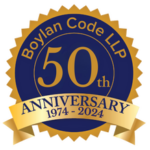By Scott M. Mooney, Esq.
In my last column (November, 2012), I reported on the recent efforts by the National Labor Relations Board (NLRB) and its Acting General Counsel to target employers with overly broad social media policies. As I discussed in that column, the basis for the scrutiny of such policies is the protection of employees’ rights to engage in concerted activity under Section 7 of the National Labor Relations Act (NLRA). But it is not just social media policies that have come under attack. The NLRB is now scrutinizing entire employee handbooks from both union and non-union employers alike to determine if they violate employee rights guaranteed under Section 7. Examples of the workplace policies and rules presently under review by the NLRB include confidentiality policies, solicitation and distribution policies, email policies, conduct policies, fraternization policies, off-duty access policies, employment at-will policies, and more.
Just last month, the NLRB issued a decision in DirectTV U.S. DirecTV Holdings, LLC and International Association of Machinists and Aerospace Workers, District Lodge 947(Case No.: 21-CA-039546) that invalidated several of DirecTV’s seemingly innocuous employment policies because its employees would “reasonably construe them as prohibiting Section 7 activity.” At issue in that case were five work policies maintained by DirecTV in its employee handbook and on its intranet system. For the various reasons discussed below, the NLRB found that each policy violated the NLRA.
The first policy addressed in DirecTV was a policy dealing with work-related communications with outside media. Among other things, the policy expressly instructed employees, “Do not contact the media.” In striking down the policy, the NLRB held that employees would construe this unequivocal language as prohibiting them from communicating with the media about labor disputes. In addition, the NLRB held that the policy was overly broad and unlawful because it failed to distinguish certain unprotected communications, such as statements that are maliciously false, from those that are protected.
The second policy invalidated by the NLRB was entitled “Public Relations” and provided that, “Employees must direct all media inquiries to a member of the Public Relations team, without exception. Employees should not contact or comment to any media about the company unless pre-authorized by Public Relations. The rules are in place to ensure that the company communicates a consistent message.” For the same reason as the first policy, the NLRB determined that this rule was also overbroad and unlawful. In so holding, the NLRB reasoned that “any rule that requires employees to secure permission from their employer as a precondition to engaging in protected concerted activity on an employee’s free time and in non-work areas is unlawful.” The NLRB further held that the policy’s stated purpose of ensuring a “consistent message” would “reasonably be construed as barring expression to the media of any employee disagreement with [DirecTV] over wages, hours, and other terms and conditions of employment.”
The third policy addressed by the NLRB related to employee communications with “law enforcement.” In pertinent part, the policy stated, “If law enforcement wants to interview or obtain information regarding a DirecTV employee, whether in person or by telephone/email, the employee should contact the security department . . . who will handle contact with law enforcement agencies and any needed coordination with DirecTV departments.” The NLRB held that DirecTV’s employees could reasonably conclude that “law enforcement” encompassed its own agents whose duty it is to investigate and enforce the NLRA, and further that they would be required to contact DirecTV’s security department before cooperating with an NLRB investigation. While the NLRB acknowledged that employer’s may, in some circumstances, have a legitimate interest in knowing about law enforcement agents’ attempts to interview employees (and to ensure that they have the opportunity to be represented by counsel), it nonetheless held that this interest did not support the broadly written and ambiguous prohibition set forth in the policy.
The fourth policy struck down by the NLRB dealt with DirecTV’s rules regarding confidentiality and company information. The policy instructed employees to “never discuss details about your job, company business, or work projects with anyone outside the Company” and to “never give out information about customers or DirecTV’s employees.” Continuing with its trend, the NLRB held that this policy was also unlawful because the explicit prohibition on releasing information concerning the “job” or fellow employees “would reasonably be understood by employees to restrict discussion of their wages and other terms and conditions of their employment.” In addition, the NLRB noted that because the rule did not exempt protected communications with third parties such as union representatives, NLRB agents, or other government agencies concerned with workplace matters, employees would reasonably interpret the rule as prohibiting such communications.
The fifth policy, entitled “Company Information”, stated that, “Employees may not blog, enter chat rooms, post messages on public or otherwise disclose company information that is not already disclosed as public record.” While this policy was not unlawful on its face, the NLRB noted the policy must be read in tandem with the unlawful confidentiality provision in the employee handbook. Employees reading the two policies in tandem, the NLRB determined, would understand the policy to prohibit disclosure of “employee records,” which would include information concerning their own or fellow employees’ wages, discipline, and performance ratings. Thus, the NLRB found the provision unlawful because it potentially interfered with the employees’ ability to engage in protected concerted activities.
This decision serves as yet another warning to employers that that the NLRB will continue to scrutinize workplace policies and rules. Therefore, to avoid becoming a target, employers should continue to take caution and consult with legal counsel for a review and update of their workplace policies, including employee handbooks, to ensure that their policies comply with the NLRB’s most recent interpretations of the law.
Scott Mooney is an Associate at Boylan Code LLP, concentrating his practice in employment law and commercial litigation matters. For more information, please contact Scott at (585) 232-5300 or smooney@boylancode.com.


